[smart_track_player url=”https://soundcloud.com/nickonken/vienna-pharaon” title=”Unpacking Your Inner World for Better Relationships” artist=”Vienna Pharaon” image=”https://nionlife.com/wp-content/uploads/2017/08/128_ViennaPharaon_COVER.jpg” color=”#de4b9b” ]
“If you’re not taking care of yourself, there’s no way you can show up as your best self for others.”
– Vienna Pharaon
Hey guys, welcome back to ONKEN RADIO, the podcast where we explore the body, mind, and soul of the creative entrepreneur. It’s my goal to help you take your creativity, business, and life to the next level. I’m so glad you’re joining me on this journey!
Today, I’m covering a topic that affects the vast majority of us: romantic relationships. My guest is Vienna Pharaon, and we discuss how our underlying beliefs that we inherited as children impact the way we handle our adult relationships. She is exceptionally well-versed on the inner workings of our minds and how our upbringings affect our interactions with others. I’m incredibly blessed to have the New York-based therapist Vienna Pharaon on the show today.
Our discussion on building better relationships helped me so much during this time. I recently went through a difficult breakup, so learning from Vienna about how to better approach relationships was incredibly valuable for me, and I know that her advice will help you too.
Who Is Vienna Pharaon?
Vienna Pharaon is a Marriage and Family Therapist operating out of New York City with the company Mindful MFT. She received her Master of Science in Marriage and Family Therapy from Northwestern University.
She specializes in unpacking the connection between relationships and individuals’ family backgrounds. She became interested in Marriage and Family Therapy at a young age when her parents went through a painful divorce:
“I wanted to learn and understand what went into creating great relationships. … Why some relationships work and others don’t. Why patterns get recreated over and over again, and if there [are] certain things that we can learn that we don’t really learn through the family system that we can start to teach. I wanted to start helping people understand the tools and tips that go into creating healthy, long-lasting relationships.”
– Vienna Pharaon
She teaches her clients that everything they do is relational, meaning that their relationships with other people shape them. Our current relationships are formed by our past relationships and family dynamics, and we talk about this more in our interview.
Vienna has also accumulated a lot of attention from her Instagram @mindfulmft, where she shares helpful insights into people’s minds so that her followers better understand themselves and others.
Vienna gave a ton of great relationship and personal advice during our interview, so let’s get into it!
Your Family Background Shapes Your Beliefs
We kicked off the interview by discussing the fundamental problem plaguing relationships these days: communication issues. Communication isn’t only about resolving conflict and conveying your needs — it’s also about self-awareness:
“I believe it takes great self-awareness to understand what our own constraints are. Where our own wounds [and] where our own triggers get in the way of communicating what our emotional needs are. One of the most common things we see in therapy is that behind our criticisms and complaints and frustrations of our partners are really just emotional needs that aren’t getting met. But without the self-awareness around that, we can’t actually have the conversation that’s emotional that gets to the core of it.”
– Vienna Pharaon
If you lack self-awareness, you’re not going to get to the core of your relationship issues in your communication. It’s also essential for us to understand why we react in certain ways in particular situations. For example, our defensiveness when handling conflict may be rooted in our family background:
“A lot of the work that I do is through the family of origin work [is] understanding the families in which we grew up [and] the messages that we received around communication. Let’s say, since we’re talking about communication now, what were the implicit [and] explicit messages that we received growing up?”
– Vienna Pharaon
We develop subconscious responses when handling different situations based on how we were raised. You may have seen your parents or guardians handle conflict in a certain way or communicate in a certain way, so you subconsciously carry that with you into adulthood:
“What were the messages around gender and communication? … These parts become the narratives of our lives. … These are the narratives that are driving everything that we do and think and feel. Like if we got in trouble for speaking up when we were younger … then we might still carry that with us and not feel like we are allowed to have a voice and be heard.”
– Vienna Pharaon
There are many common tips for communicating with your romantic partner and resolving conflict, but oftentimes when we get upset, we revert to the narratives that we brought with us from our upbringing. We often don’t even realize that we have beliefs that emerge because our beliefs are unconscious and developed at an incredibly young age:
“Dr. Bruce Lipton is someone [that] I’ve been reading up on a bit, and it’s really fascinating what the research is showing that like 95 to 99% of everything we think [and] believe … all of it comes from a non-conscious space. Most of that being our subconscious. So when you just think about that number, what are we actually choosing? … We accrue most of that between the ages of zero and seven. … What we believe gets passed down, whether it’s from our families, society, teachers, coaches, whomever.”
– Vienna Pharaon
Our unconscious beliefs often shape how we react in moments of difficulty. We can overcome our ingrained reactions by tapping into where those reactions come from:
“Go into that [subconscious] space and really check those messages to see what it is we actually believe versus what it is we’ve been told, and deciphering between the two. … Pause in our moments to say, ‘Okay, I’m going to rumble down into my subconscious to see what I know about this. Like where have I felt this before? What are the stories I know about this?’… And doing that, it strengthens that gateway to be able to pause and then sink into that space, bring up what we need, and then let it go again.”
– Vienna Pharaon
It’s essential that we discover where our unconscious responses come from so that we can overcome ingrained beliefs and reactions that hurt our relationships. Vienna compared tapping into this subconscious space like developing muscle memory: The more we do it, the easier it will become.
What unconscious beliefs do you have that may be harming the way you handle relationships? Maybe you shut down and refuse to communicate when handling conflict because that’s the way your parents dealt with it. Tap into you why you respond a certain way by analyzing your subconscious space.
Don’t Put Your Worth in External Things
Vienna and I also discussed how it’s important to have self-worth rooted in ourselves rather than in external things and outcomes. Basing your self-worth in the amount of money you make or another outcome takes away from what you actually value:
“If we go into the outcome space, it just takes us so far away from ourselves and the things that are really probably most important in our lives. I think when we are putting all of the marbles into the outcome of like, ‘Well, what’s most important in my life is like how much my paycheck is or like who my clients are.’”
– Vienna Pharaon
It’s critical that you find peace within yourself rather than in any external thing. Any external thing that you place your self-worth in can be taken:
“I think that the practice of finding peace within oneself is so important, whether it’s through meditation, whether you go to therapy, whether you’re working out, whether you’re labeling the things that are most important to your life and the way in which you want to live that life. Like those are the things that can’t be knocked over. You don’t want to put power in something that can be stripped from you. … When it does get taken, we don’t know where to turn.”
– Vienna Pharaon
Have you ever put your sense of self-worth in a job but then felt lost when the job ended? Don’t invest your self-worth in something that can be taken away from you. Vienna used the example of people putting their sense of self-worth in relationships. We shouldn’t attach our self-worth in outside things, including other people — self-worth needs to come from within.
Vienna suggested that we take inventory of the different areas of our lives that contribute to our overall well being, including our health, career, relationships, and spirituality. It’s important to evaluate the different areas of our lives that contribute to our happiness and sense of internal self-worth. She also observed that to engage in relationships effectively, you need to prioritize yourself over other people:
“You can’t pour from an empty cup. … [an] old client of mine … he just said, ‘After me, you come first.’ And I love that. … If you’re not taking care of yourself, there’s no way that you can show up as your best self for others.”
– Vienna Pharaon
Prioritizing yourself may sound selfish at first, but if you don’t put yourself first, you’re not going to be your best self for other people.
Another considerable component for working on your sense of self-worth is creativity. Creativity brings people an internal sense of peace:
“We’ve got all of these narratives that are going [like] that inner self critic that’s constantly yapping at us. Telling us everything that we’re doing wrong or where we’re not good enough or this isn’t enough or that isn’t enough. And so when we find whatever it is that our creativity might be. … Creativity is for me the release of that critic and the invitation for peace and freedom and connection.”
– Vienna Pharaon
Have you ever noticed how serene you feel when you’re engaging in Creative Alchemy? Creativity is such an essential part of building self-worth and finding fulfillment, regardless of whether you’re an artist. A crucial part of finding fulfillment in creation is not attaching outcome to your creation. Create for yourself — don’t create for the validation of others or success.
How Therapy Can Help You Live a Vibrant Life
There’s a common stigma about therapy in our society. People associate it with instability or having severe mental health issues, but the truth is that everyone has problems and can benefit from therapy. Therapy can lead people to live more vibrant lives by helping them overcome the barriers rooted in the past:
“The hope is that we are unlocking the constraints, right? We’re lifting the blocks in our lives. That’s the point of coming in is to start talking about our story and understanding our story differently, understanding where it keeps us stuck.”
– Vienna Pharaon
Understanding your story and how it affects your decisions can help you become a better person and lead to better relationships:
“When we enter into therapy, my goal is to start unlocking the constraints and not living from a space of fear. … Being aware, being connected, leaning into vulnerability, asking for what we need, becoming great partners. … And when we’re doing that work, we’re inching ourselves closer to joy and connectedness [and] intimacy. … This work is the most powerful work that we can do. [Developing] self-awareness, connecting to ourselves, … [and] understanding our patterns, and why we choose people.”
– Vienna Pharaon
Therapy can help people overcome the patterns rooted in their unconscious beliefs and narratives that they developed at a young age. Bringing awareness to our patterns of behavior and why we make certain choices can help us break unhelpful patterns:
“Actually leaning in to have the conversations and connect to the answers that are trying to work the way up to our conscious mind so that we can start choosing differently. When we can start choosing differently is when we can start having joy in our life. Because when we keep choosing the same stuff over and over again, that brings in sadness and hurt and betrayal and abandonment, and you can’t live a vibrant life like that.”
– Vienna Pharaon
Do you ever find yourself in a pattern of handling conflicts in an unhelpful way? Or maybe you find yourself choosing to pursue relationships with the same type of person, which continuously leads to heartache? You need to bring awareness to why you make bad decisions in order to make positive changes and live a more vibrant life, and therapy is an effective and healing way to do that.
I’d reckon that getting to the act of creating in our lives is at least 80% transmuting our own bullshit and fears. Especially after we’ve derailed our own train, getting that train back on the tracks takes some serious work.
Be a Creative Alchemist with Vienna Pharaon
Alchemy is defined as the process of taking something ordinary and turning it into something extraordinary, sometimes in a way that cannot be explained.
With that being said, I define Creative Alchemy as using the process of creativity to create a lens of which to perform alchemy. These principles not only apply to artists and creatives in their own creative processes, but to anyone who wants to create an extraordinary life in color for themselves. I’ve found that 80% of creating is alchemizing the thoughts, emotions, and other inner blocks that keep you from putting the pen to the paper. Navigating to the act of creation takes alchemical processes — Vienna Pharaon is a master at this.
I learned so much from my interview with Vienna Pharaon! She is absolutely brilliant at understanding relationships and people, so make sure to listen to the whole episode to learn more about cultivating positive relationships! Also, if you want a counseling session with her or one of her associates, check out her website.
Her answer to what the phrase “live inspiration” means to her was incredibly inspiring:
“I think … [live inspiration is to] remain a student. … The second you think that you’ve got it covered is the second that life smacks you in the face. And you’re like, ‘Okay. Nope. I don’t.’ So I think for me, it’s constantly recognizing that I am in the student position forever and ever … To be a master is to remain a student. To live inspirationally is to be a student.”
– Vienna Pharaon
Vienna’s right. You can always learn more from life to improve yourself and your relationships. None of us has all the answers, so we need to humble ourselves and keep learning from others around us.
If you found this episode helpful, please share it and tag me, @nickonken, and Vienna Pharaon, @mindfulmft, on Instagram and share what you found to be the most beneficial! Also, be sure to leave me a good review on Apple Podcasts so that we can get this content to more creative alchemists like you!
Remember, you have underlying beliefs that you may not even be aware of that affect the decisions you make. Unpack your ingrained beliefs to make better decisions and live a more vibrant life!
See you next time —
Nick Onken
“A therapist can only take their clients as far as they’ve taken themselves.”
– Vienna Pharaon
Some things we learn in this podcast:
- What drew her to marriage and family therapy [4:35]
- The impact of NYC on relationships and self-worth [7:30]
- Common issues that Vienna often sees in relationships [9:15]
- If it was easy to make these changes, we’d all be doing it [11:10]
- Why family of origin is important [12:10]
- The mystery of the subconscious space [15:50]
- It takes work to pause [17:10]
- Why it starts with your role in your family system [19:00]
- We bring roles from our youth into our relationships [21:15]
- What it means to come from “I” [23:25]
- How relationships with entrepreneurs are different [26:25]
- How to let your partner know that they’re a priority while still taking time for yourself [31:30]
- What are the five love languages [32:20]
- The importance of the practice of finding peace within instead of focusing on outcome [34:30]
- Take inventory of your life every so often [38:50]
- How Vienna combines therapy and entrepreneurship and fitness [43:00]
- What creativity does for the soul [46;40]
- How Vienna creates her Instagram content [49:20]
- What makes a good therapist [56:40]
- How therapy helps you lead a vibrant life [1:02:00]
- Why you have to constantly be a student and be learning [1:06:40]
Links mentioned:
- Listen to Esther Perel’s series Where Should We Begin?
- Check out The Gottmann Institute
- Read The Way of the Superior Man by David Deida
- Learn about The Five Love Languages
- Read Daring Greatly by Brené Brown
- Music Credit: Pupunanny by Losco
LET'S CONSPIRE & CREATE
CULTIVATING YOUR VISUAL UNIQUENESS AND STREAMLINING YOUR BRAND'S EVOLUTION
[smart_track_player url=”https://soundcloud.com/nickonken/vienna-pharaon” title=”Unpacking Your Inner World for Better Relationships” artist=”Vienna Pharaon” image=”https://nionlife.com/wp-content/uploads/2017/08/128_ViennaPharaon_COVER.jpg” color=”#de4b9b” ]
“If you’re not taking care of yourself, there’s no way you can show up as your best self for others.”
– Vienna Pharaon
Hey guys, welcome back to ONKEN RADIO, the podcast where we explore the body, mind, and soul of the creative entrepreneur. It’s my goal to help you take your creativity, business, and life to the next level. I’m so glad you’re joining me on this journey!
Today, I’m covering a topic that affects the vast majority of us: romantic relationships. My guest is Vienna Pharaon, and we discuss how our underlying beliefs that we inherited as children impact the way we handle our adult relationships. She is exceptionally well-versed on the inner workings of our minds and how our upbringings affect our interactions with others. I’m incredibly blessed to have the New York-based therapist Vienna Pharaon on the show today.
Our discussion on building better relationships helped me so much during this time. I recently went through a difficult breakup, so learning from Vienna about how to better approach relationships was incredibly valuable for me, and I know that her advice will help you too.
Who Is Vienna Pharaon?
Vienna Pharaon is a Marriage and Family Therapist operating out of New York City with the company Mindful MFT. She received her Master of Science in Marriage and Family Therapy from Northwestern University.
She specializes in unpacking the connection between relationships and individuals’ family backgrounds. She became interested in Marriage and Family Therapy at a young age when her parents went through a painful divorce:
“I wanted to learn and understand what went into creating great relationships. … Why some relationships work and others don’t. Why patterns get recreated over and over again, and if there [are] certain things that we can learn that we don’t really learn through the family system that we can start to teach. I wanted to start helping people understand the tools and tips that go into creating healthy, long-lasting relationships.”
– Vienna Pharaon
She teaches her clients that everything they do is relational, meaning that their relationships with other people shape them. Our current relationships are formed by our past relationships and family dynamics, and we talk about this more in our interview.
Vienna has also accumulated a lot of attention from her Instagram @mindfulmft, where she shares helpful insights into people’s minds so that her followers better understand themselves and others.
Vienna gave a ton of great relationship and personal advice during our interview, so let’s get into it!
Your Family Background Shapes Your Beliefs
We kicked off the interview by discussing the fundamental problem plaguing relationships these days: communication issues. Communication isn’t only about resolving conflict and conveying your needs — it’s also about self-awareness:
“I believe it takes great self-awareness to understand what our own constraints are. Where our own wounds [and] where our own triggers get in the way of communicating what our emotional needs are. One of the most common things we see in therapy is that behind our criticisms and complaints and frustrations of our partners are really just emotional needs that aren’t getting met. But without the self-awareness around that, we can’t actually have the conversation that’s emotional that gets to the core of it.”
– Vienna Pharaon
If you lack self-awareness, you’re not going to get to the core of your relationship issues in your communication. It’s also essential for us to understand why we react in certain ways in particular situations. For example, our defensiveness when handling conflict may be rooted in our family background:
“A lot of the work that I do is through the family of origin work [is] understanding the families in which we grew up [and] the messages that we received around communication. Let’s say, since we’re talking about communication now, what were the implicit [and] explicit messages that we received growing up?”
– Vienna Pharaon
We develop subconscious responses when handling different situations based on how we were raised. You may have seen your parents or guardians handle conflict in a certain way or communicate in a certain way, so you subconsciously carry that with you into adulthood:
“What were the messages around gender and communication? … These parts become the narratives of our lives. … These are the narratives that are driving everything that we do and think and feel. Like if we got in trouble for speaking up when we were younger … then we might still carry that with us and not feel like we are allowed to have a voice and be heard.”
– Vienna Pharaon
There are many common tips for communicating with your romantic partner and resolving conflict, but oftentimes when we get upset, we revert to the narratives that we brought with us from our upbringing. We often don’t even realize that we have beliefs that emerge because our beliefs are unconscious and developed at an incredibly young age:
“Dr. Bruce Lipton is someone [that] I’ve been reading up on a bit, and it’s really fascinating what the research is showing that like 95 to 99% of everything we think [and] believe … all of it comes from a non-conscious space. Most of that being our subconscious. So when you just think about that number, what are we actually choosing? … We accrue most of that between the ages of zero and seven. … What we believe gets passed down, whether it’s from our families, society, teachers, coaches, whomever.”
– Vienna Pharaon
Our unconscious beliefs often shape how we react in moments of difficulty. We can overcome our ingrained reactions by tapping into where those reactions come from:
“Go into that [subconscious] space and really check those messages to see what it is we actually believe versus what it is we’ve been told, and deciphering between the two. … Pause in our moments to say, ‘Okay, I’m going to rumble down into my subconscious to see what I know about this. Like where have I felt this before? What are the stories I know about this?’… And doing that, it strengthens that gateway to be able to pause and then sink into that space, bring up what we need, and then let it go again.”
– Vienna Pharaon
It’s essential that we discover where our unconscious responses come from so that we can overcome ingrained beliefs and reactions that hurt our relationships. Vienna compared tapping into this subconscious space like developing muscle memory: The more we do it, the easier it will become.
What unconscious beliefs do you have that may be harming the way you handle relationships? Maybe you shut down and refuse to communicate when handling conflict because that’s the way your parents dealt with it. Tap into you why you respond a certain way by analyzing your subconscious space.
Don’t Put Your Worth in External Things
Vienna and I also discussed how it’s important to have self-worth rooted in ourselves rather than in external things and outcomes. Basing your self-worth in the amount of money you make or another outcome takes away from what you actually value:
“If we go into the outcome space, it just takes us so far away from ourselves and the things that are really probably most important in our lives. I think when we are putting all of the marbles into the outcome of like, ‘Well, what’s most important in my life is like how much my paycheck is or like who my clients are.’”
– Vienna Pharaon
It’s critical that you find peace within yourself rather than in any external thing. Any external thing that you place your self-worth in can be taken:
“I think that the practice of finding peace within oneself is so important, whether it’s through meditation, whether you go to therapy, whether you’re working out, whether you’re labeling the things that are most important to your life and the way in which you want to live that life. Like those are the things that can’t be knocked over. You don’t want to put power in something that can be stripped from you. … When it does get taken, we don’t know where to turn.”
– Vienna Pharaon
Have you ever put your sense of self-worth in a job but then felt lost when the job ended? Don’t invest your self-worth in something that can be taken away from you. Vienna used the example of people putting their sense of self-worth in relationships. We shouldn’t attach our self-worth in outside things, including other people — self-worth needs to come from within.
Vienna suggested that we take inventory of the different areas of our lives that contribute to our overall well being, including our health, career, relationships, and spirituality. It’s important to evaluate the different areas of our lives that contribute to our happiness and sense of internal self-worth. She also observed that to engage in relationships effectively, you need to prioritize yourself over other people:
“You can’t pour from an empty cup. … [an] old client of mine … he just said, ‘After me, you come first.’ And I love that. … If you’re not taking care of yourself, there’s no way that you can show up as your best self for others.”
– Vienna Pharaon
Prioritizing yourself may sound selfish at first, but if you don’t put yourself first, you’re not going to be your best self for other people.
Another considerable component for working on your sense of self-worth is creativity. Creativity brings people an internal sense of peace:
“We’ve got all of these narratives that are going [like] that inner self critic that’s constantly yapping at us. Telling us everything that we’re doing wrong or where we’re not good enough or this isn’t enough or that isn’t enough. And so when we find whatever it is that our creativity might be. … Creativity is for me the release of that critic and the invitation for peace and freedom and connection.”
– Vienna Pharaon
Have you ever noticed how serene you feel when you’re engaging in Creative Alchemy? Creativity is such an essential part of building self-worth and finding fulfillment, regardless of whether you’re an artist. A crucial part of finding fulfillment in creation is not attaching outcome to your creation. Create for yourself — don’t create for the validation of others or success.
How Therapy Can Help You Live a Vibrant Life
There’s a common stigma about therapy in our society. People associate it with instability or having severe mental health issues, but the truth is that everyone has problems and can benefit from therapy. Therapy can lead people to live more vibrant lives by helping them overcome the barriers rooted in the past:
“The hope is that we are unlocking the constraints, right? We’re lifting the blocks in our lives. That’s the point of coming in is to start talking about our story and understanding our story differently, understanding where it keeps us stuck.”
– Vienna Pharaon
Understanding your story and how it affects your decisions can help you become a better person and lead to better relationships:
“When we enter into therapy, my goal is to start unlocking the constraints and not living from a space of fear. … Being aware, being connected, leaning into vulnerability, asking for what we need, becoming great partners. … And when we’re doing that work, we’re inching ourselves closer to joy and connectedness [and] intimacy. … This work is the most powerful work that we can do. [Developing] self-awareness, connecting to ourselves, … [and] understanding our patterns, and why we choose people.”
– Vienna Pharaon
Therapy can help people overcome the patterns rooted in their unconscious beliefs and narratives that they developed at a young age. Bringing awareness to our patterns of behavior and why we make certain choices can help us break unhelpful patterns:
“Actually leaning in to have the conversations and connect to the answers that are trying to work the way up to our conscious mind so that we can start choosing differently. When we can start choosing differently is when we can start having joy in our life. Because when we keep choosing the same stuff over and over again, that brings in sadness and hurt and betrayal and abandonment, and you can’t live a vibrant life like that.”
– Vienna Pharaon
Do you ever find yourself in a pattern of handling conflicts in an unhelpful way? Or maybe you find yourself choosing to pursue relationships with the same type of person, which continuously leads to heartache? You need to bring awareness to why you make bad decisions in order to make positive changes and live a more vibrant life, and therapy is an effective and healing way to do that.
I’d reckon that getting to the act of creating in our lives is at least 80% transmuting our own bullshit and fears. Especially after we’ve derailed our own train, getting that train back on the tracks takes some serious work.
Be a Creative Alchemist with Vienna Pharaon
Alchemy is defined as the process of taking something ordinary and turning it into something extraordinary, sometimes in a way that cannot be explained.
With that being said, I define Creative Alchemy as using the process of creativity to create a lens of which to perform alchemy. These principles not only apply to artists and creatives in their own creative processes, but to anyone who wants to create an extraordinary life in color for themselves. I’ve found that 80% of creating is alchemizing the thoughts, emotions, and other inner blocks that keep you from putting the pen to the paper. Navigating to the act of creation takes alchemical processes — Vienna Pharaon is a master at this.
I learned so much from my interview with Vienna Pharaon! She is absolutely brilliant at understanding relationships and people, so make sure to listen to the whole episode to learn more about cultivating positive relationships! Also, if you want a counseling session with her or one of her associates, check out her website.
Her answer to what the phrase “live inspiration” means to her was incredibly inspiring:
“I think … [live inspiration is to] remain a student. … The second you think that you’ve got it covered is the second that life smacks you in the face. And you’re like, ‘Okay. Nope. I don’t.’ So I think for me, it’s constantly recognizing that I am in the student position forever and ever … To be a master is to remain a student. To live inspirationally is to be a student.”
– Vienna Pharaon
Vienna’s right. You can always learn more from life to improve yourself and your relationships. None of us has all the answers, so we need to humble ourselves and keep learning from others around us.
If you found this episode helpful, please share it and tag me, @nickonken, and Vienna Pharaon, @mindfulmft, on Instagram and share what you found to be the most beneficial! Also, be sure to leave me a good review on Apple Podcasts so that we can get this content to more creative alchemists like you!
Remember, you have underlying beliefs that you may not even be aware of that affect the decisions you make. Unpack your ingrained beliefs to make better decisions and live a more vibrant life!
See you next time —
Nick Onken
“A therapist can only take their clients as far as they’ve taken themselves.”
– Vienna Pharaon
Some things we learn in this podcast:
- What drew her to marriage and family therapy [4:35]
- The impact of NYC on relationships and self-worth [7:30]
- Common issues that Vienna often sees in relationships [9:15]
- If it was easy to make these changes, we’d all be doing it [11:10]
- Why family of origin is important [12:10]
- The mystery of the subconscious space [15:50]
- It takes work to pause [17:10]
- Why it starts with your role in your family system [19:00]
- We bring roles from our youth into our relationships [21:15]
- What it means to come from “I” [23:25]
- How relationships with entrepreneurs are different [26:25]
- How to let your partner know that they’re a priority while still taking time for yourself [31:30]
- What are the five love languages [32:20]
- The importance of the practice of finding peace within instead of focusing on outcome [34:30]
- Take inventory of your life every so often [38:50]
- How Vienna combines therapy and entrepreneurship and fitness [43:00]
- What creativity does for the soul [46;40]
- How Vienna creates her Instagram content [49:20]
- What makes a good therapist [56:40]
- How therapy helps you lead a vibrant life [1:02:00]
- Why you have to constantly be a student and be learning [1:06:40]
Links mentioned:
- Listen to Esther Perel’s series Where Should We Begin?
- Check out The Gottmann Institute
- Read The Way of the Superior Man by David Deida
- Learn about The Five Love Languages
- Read Daring Greatly by Brené Brown
- Music Credit: Pupunanny by Losco
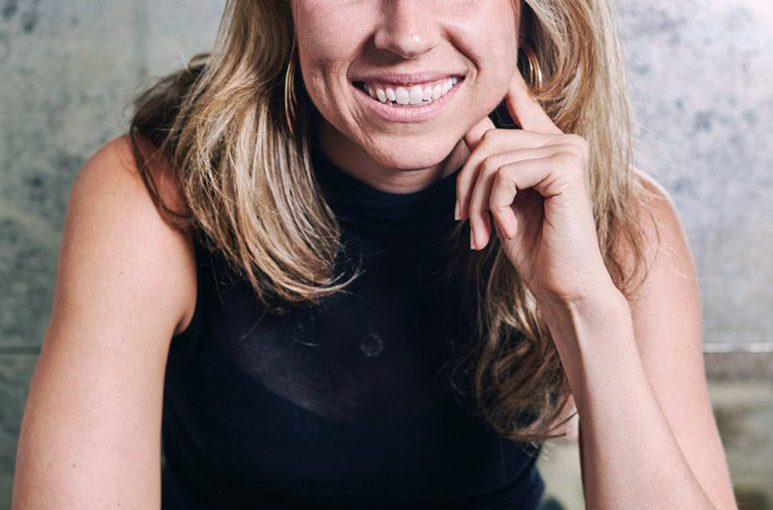
8/09/17
128: Vienna Pharaon – Unpacking Your Inner World for Better Relationships
infuse your vision with a fresh breath of creativity and vitality
BOOK A BRAND PHOTOSHOOT
GET THE DETAILS
GET THE DETAILS
infuse your vision with a fresh breath of creativity and vitality
PODCAST
BRAND INTELLIGENCE
CREATIVE INTELLIGENCE
LIFE INTELLIGENCE

masterfully aligning perception and reality through personal branding
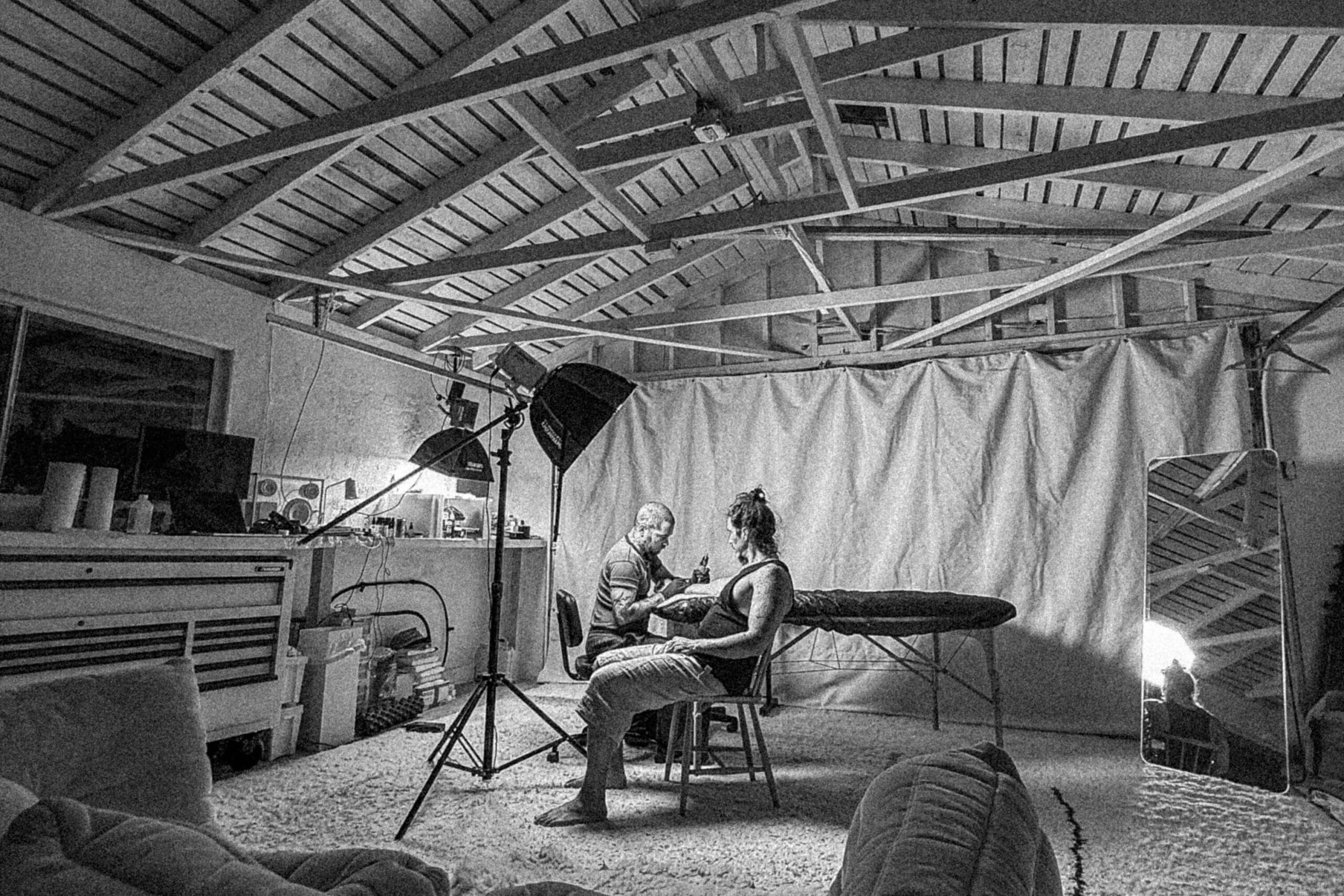
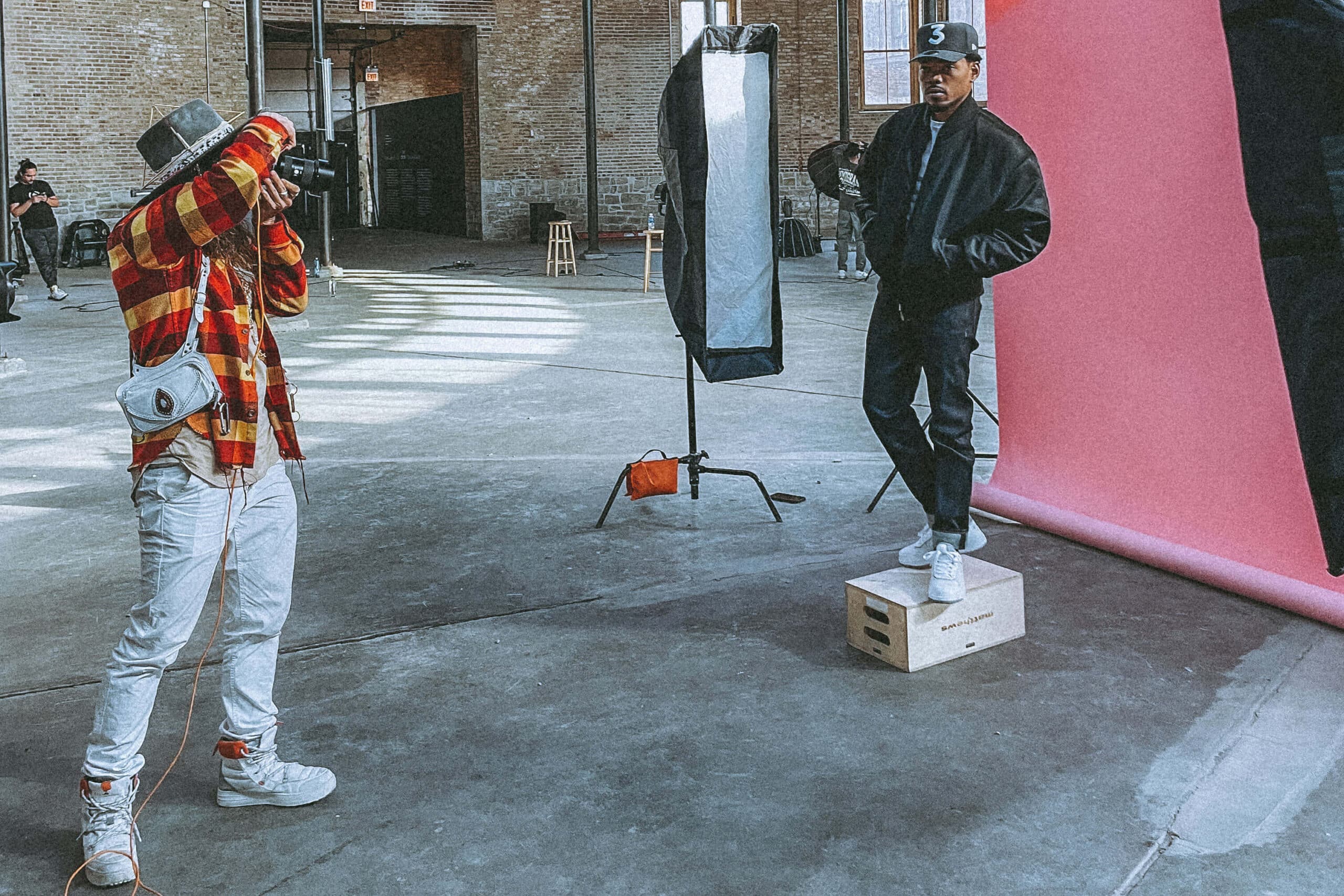
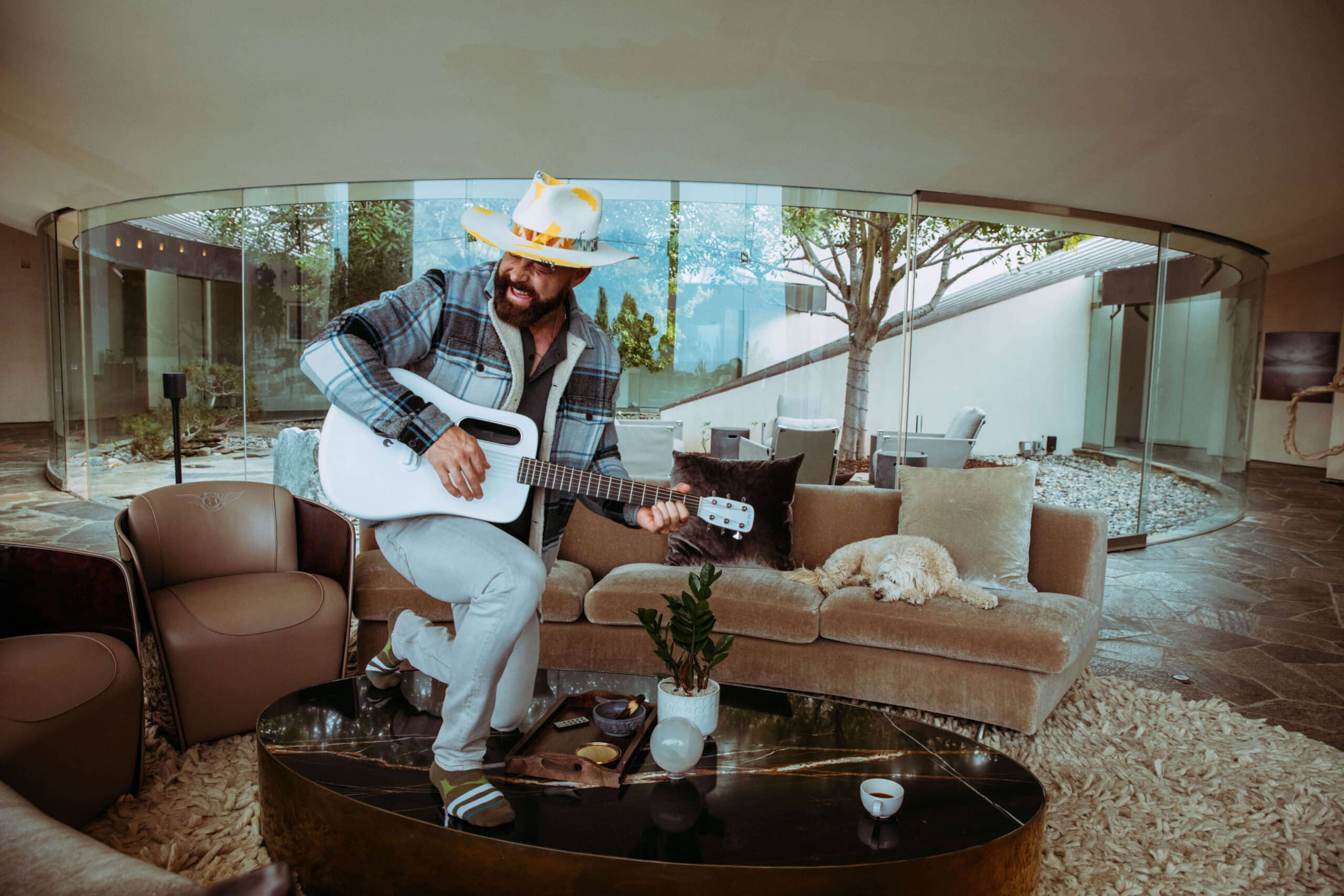
masterfully aligning perception and reality through personal branding

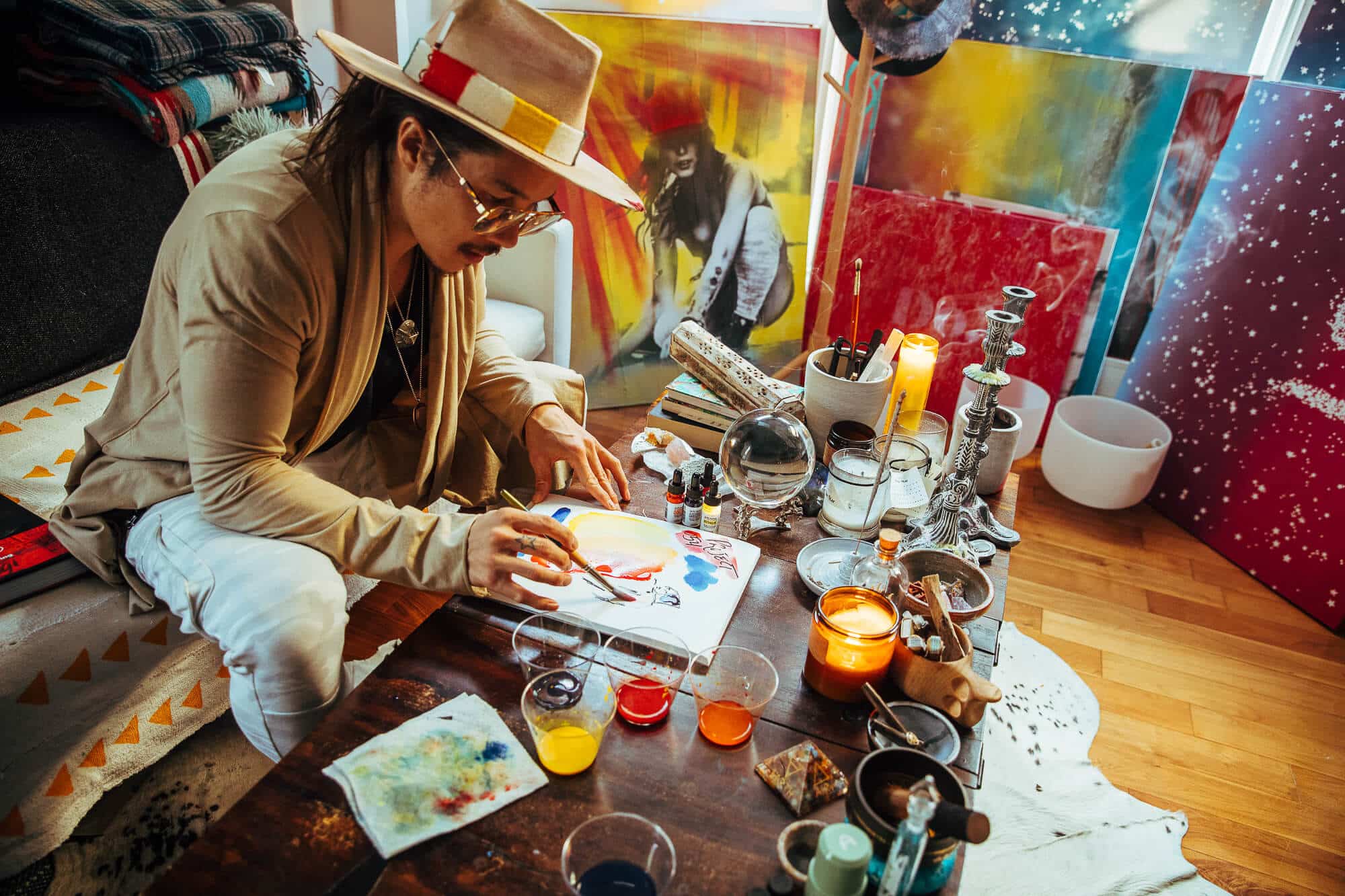
[smart_track_player url=”https://soundcloud.com/nickonken/vienna-pharaon” title=”Unpacking Your Inner World for Better Relationships” artist=”Vienna Pharaon” image=”https://nionlife.com/wp-content/uploads/2017/08/128_ViennaPharaon_COVER.jpg” color=”#de4b9b” ]
“If you’re not taking care of yourself, there’s no way you can show up as your best self for others.”
– Vienna Pharaon
Hey guys, welcome back to ONKEN RADIO, the podcast where we explore the body, mind, and soul of the creative entrepreneur. It’s my goal to help you take your creativity, business, and life to the next level. I’m so glad you’re joining me on this journey!
Today, I’m covering a topic that affects the vast majority of us: romantic relationships. My guest is Vienna Pharaon, and we discuss how our underlying beliefs that we inherited as children impact the way we handle our adult relationships. She is exceptionally well-versed on the inner workings of our minds and how our upbringings affect our interactions with others. I’m incredibly blessed to have the New York-based therapist Vienna Pharaon on the show today.
Our discussion on building better relationships helped me so much during this time. I recently went through a difficult breakup, so learning from Vienna about how to better approach relationships was incredibly valuable for me, and I know that her advice will help you too.
Who Is Vienna Pharaon?
Vienna Pharaon is a Marriage and Family Therapist operating out of New York City with the company Mindful MFT. She received her Master of Science in Marriage and Family Therapy from Northwestern University.
She specializes in unpacking the connection between relationships and individuals’ family backgrounds. She became interested in Marriage and Family Therapy at a young age when her parents went through a painful divorce:
“I wanted to learn and understand what went into creating great relationships. … Why some relationships work and others don’t. Why patterns get recreated over and over again, and if there [are] certain things that we can learn that we don’t really learn through the family system that we can start to teach. I wanted to start helping people understand the tools and tips that go into creating healthy, long-lasting relationships.”
– Vienna Pharaon
She teaches her clients that everything they do is relational, meaning that their relationships with other people shape them. Our current relationships are formed by our past relationships and family dynamics, and we talk about this more in our interview.
Vienna has also accumulated a lot of attention from her Instagram @mindfulmft, where she shares helpful insights into people’s minds so that her followers better understand themselves and others.
Vienna gave a ton of great relationship and personal advice during our interview, so let’s get into it!
Your Family Background Shapes Your Beliefs
We kicked off the interview by discussing the fundamental problem plaguing relationships these days: communication issues. Communication isn’t only about resolving conflict and conveying your needs — it’s also about self-awareness:
“I believe it takes great self-awareness to understand what our own constraints are. Where our own wounds [and] where our own triggers get in the way of communicating what our emotional needs are. One of the most common things we see in therapy is that behind our criticisms and complaints and frustrations of our partners are really just emotional needs that aren’t getting met. But without the self-awareness around that, we can’t actually have the conversation that’s emotional that gets to the core of it.”
– Vienna Pharaon
If you lack self-awareness, you’re not going to get to the core of your relationship issues in your communication. It’s also essential for us to understand why we react in certain ways in particular situations. For example, our defensiveness when handling conflict may be rooted in our family background:
“A lot of the work that I do is through the family of origin work [is] understanding the families in which we grew up [and] the messages that we received around communication. Let’s say, since we’re talking about communication now, what were the implicit [and] explicit messages that we received growing up?”
– Vienna Pharaon
We develop subconscious responses when handling different situations based on how we were raised. You may have seen your parents or guardians handle conflict in a certain way or communicate in a certain way, so you subconsciously carry that with you into adulthood:
“What were the messages around gender and communication? … These parts become the narratives of our lives. … These are the narratives that are driving everything that we do and think and feel. Like if we got in trouble for speaking up when we were younger … then we might still carry that with us and not feel like we are allowed to have a voice and be heard.”
– Vienna Pharaon
There are many common tips for communicating with your romantic partner and resolving conflict, but oftentimes when we get upset, we revert to the narratives that we brought with us from our upbringing. We often don’t even realize that we have beliefs that emerge because our beliefs are unconscious and developed at an incredibly young age:
“Dr. Bruce Lipton is someone [that] I’ve been reading up on a bit, and it’s really fascinating what the research is showing that like 95 to 99% of everything we think [and] believe … all of it comes from a non-conscious space. Most of that being our subconscious. So when you just think about that number, what are we actually choosing? … We accrue most of that between the ages of zero and seven. … What we believe gets passed down, whether it’s from our families, society, teachers, coaches, whomever.”
– Vienna Pharaon
Our unconscious beliefs often shape how we react in moments of difficulty. We can overcome our ingrained reactions by tapping into where those reactions come from:
“Go into that [subconscious] space and really check those messages to see what it is we actually believe versus what it is we’ve been told, and deciphering between the two. … Pause in our moments to say, ‘Okay, I’m going to rumble down into my subconscious to see what I know about this. Like where have I felt this before? What are the stories I know about this?’… And doing that, it strengthens that gateway to be able to pause and then sink into that space, bring up what we need, and then let it go again.”
– Vienna Pharaon
It’s essential that we discover where our unconscious responses come from so that we can overcome ingrained beliefs and reactions that hurt our relationships. Vienna compared tapping into this subconscious space like developing muscle memory: The more we do it, the easier it will become.
What unconscious beliefs do you have that may be harming the way you handle relationships? Maybe you shut down and refuse to communicate when handling conflict because that’s the way your parents dealt with it. Tap into you why you respond a certain way by analyzing your subconscious space.
Don’t Put Your Worth in External Things
Vienna and I also discussed how it’s important to have self-worth rooted in ourselves rather than in external things and outcomes. Basing your self-worth in the amount of money you make or another outcome takes away from what you actually value:
“If we go into the outcome space, it just takes us so far away from ourselves and the things that are really probably most important in our lives. I think when we are putting all of the marbles into the outcome of like, ‘Well, what’s most important in my life is like how much my paycheck is or like who my clients are.’”
– Vienna Pharaon
It’s critical that you find peace within yourself rather than in any external thing. Any external thing that you place your self-worth in can be taken:
“I think that the practice of finding peace within oneself is so important, whether it’s through meditation, whether you go to therapy, whether you’re working out, whether you’re labeling the things that are most important to your life and the way in which you want to live that life. Like those are the things that can’t be knocked over. You don’t want to put power in something that can be stripped from you. … When it does get taken, we don’t know where to turn.”
– Vienna Pharaon
Have you ever put your sense of self-worth in a job but then felt lost when the job ended? Don’t invest your self-worth in something that can be taken away from you. Vienna used the example of people putting their sense of self-worth in relationships. We shouldn’t attach our self-worth in outside things, including other people — self-worth needs to come from within.
Vienna suggested that we take inventory of the different areas of our lives that contribute to our overall well being, including our health, career, relationships, and spirituality. It’s important to evaluate the different areas of our lives that contribute to our happiness and sense of internal self-worth. She also observed that to engage in relationships effectively, you need to prioritize yourself over other people:
“You can’t pour from an empty cup. … [an] old client of mine … he just said, ‘After me, you come first.’ And I love that. … If you’re not taking care of yourself, there’s no way that you can show up as your best self for others.”
– Vienna Pharaon
Prioritizing yourself may sound selfish at first, but if you don’t put yourself first, you’re not going to be your best self for other people.
Another considerable component for working on your sense of self-worth is creativity. Creativity brings people an internal sense of peace:
“We’ve got all of these narratives that are going [like] that inner self critic that’s constantly yapping at us. Telling us everything that we’re doing wrong or where we’re not good enough or this isn’t enough or that isn’t enough. And so when we find whatever it is that our creativity might be. … Creativity is for me the release of that critic and the invitation for peace and freedom and connection.”
– Vienna Pharaon
Have you ever noticed how serene you feel when you’re engaging in Creative Alchemy? Creativity is such an essential part of building self-worth and finding fulfillment, regardless of whether you’re an artist. A crucial part of finding fulfillment in creation is not attaching outcome to your creation. Create for yourself — don’t create for the validation of others or success.
How Therapy Can Help You Live a Vibrant Life
There’s a common stigma about therapy in our society. People associate it with instability or having severe mental health issues, but the truth is that everyone has problems and can benefit from therapy. Therapy can lead people to live more vibrant lives by helping them overcome the barriers rooted in the past:
“The hope is that we are unlocking the constraints, right? We’re lifting the blocks in our lives. That’s the point of coming in is to start talking about our story and understanding our story differently, understanding where it keeps us stuck.”
– Vienna Pharaon
Understanding your story and how it affects your decisions can help you become a better person and lead to better relationships:
“When we enter into therapy, my goal is to start unlocking the constraints and not living from a space of fear. … Being aware, being connected, leaning into vulnerability, asking for what we need, becoming great partners. … And when we’re doing that work, we’re inching ourselves closer to joy and connectedness [and] intimacy. … This work is the most powerful work that we can do. [Developing] self-awareness, connecting to ourselves, … [and] understanding our patterns, and why we choose people.”
– Vienna Pharaon
Therapy can help people overcome the patterns rooted in their unconscious beliefs and narratives that they developed at a young age. Bringing awareness to our patterns of behavior and why we make certain choices can help us break unhelpful patterns:
“Actually leaning in to have the conversations and connect to the answers that are trying to work the way up to our conscious mind so that we can start choosing differently. When we can start choosing differently is when we can start having joy in our life. Because when we keep choosing the same stuff over and over again, that brings in sadness and hurt and betrayal and abandonment, and you can’t live a vibrant life like that.”
– Vienna Pharaon
Do you ever find yourself in a pattern of handling conflicts in an unhelpful way? Or maybe you find yourself choosing to pursue relationships with the same type of person, which continuously leads to heartache? You need to bring awareness to why you make bad decisions in order to make positive changes and live a more vibrant life, and therapy is an effective and healing way to do that.
I’d reckon that getting to the act of creating in our lives is at least 80% transmuting our own bullshit and fears. Especially after we’ve derailed our own train, getting that train back on the tracks takes some serious work.
Be a Creative Alchemist with Vienna Pharaon
Alchemy is defined as the process of taking something ordinary and turning it into something extraordinary, sometimes in a way that cannot be explained.
With that being said, I define Creative Alchemy as using the process of creativity to create a lens of which to perform alchemy. These principles not only apply to artists and creatives in their own creative processes, but to anyone who wants to create an extraordinary life in color for themselves. I’ve found that 80% of creating is alchemizing the thoughts, emotions, and other inner blocks that keep you from putting the pen to the paper. Navigating to the act of creation takes alchemical processes — Vienna Pharaon is a master at this.
I learned so much from my interview with Vienna Pharaon! She is absolutely brilliant at understanding relationships and people, so make sure to listen to the whole episode to learn more about cultivating positive relationships! Also, if you want a counseling session with her or one of her associates, check out her website.
Her answer to what the phrase “live inspiration” means to her was incredibly inspiring:
“I think … [live inspiration is to] remain a student. … The second you think that you’ve got it covered is the second that life smacks you in the face. And you’re like, ‘Okay. Nope. I don’t.’ So I think for me, it’s constantly recognizing that I am in the student position forever and ever … To be a master is to remain a student. To live inspirationally is to be a student.”
– Vienna Pharaon
Vienna’s right. You can always learn more from life to improve yourself and your relationships. None of us has all the answers, so we need to humble ourselves and keep learning from others around us.
If you found this episode helpful, please share it and tag me, @nickonken, and Vienna Pharaon, @mindfulmft, on Instagram and share what you found to be the most beneficial! Also, be sure to leave me a good review on Apple Podcasts so that we can get this content to more creative alchemists like you!
Remember, you have underlying beliefs that you may not even be aware of that affect the decisions you make. Unpack your ingrained beliefs to make better decisions and live a more vibrant life!
See you next time —
Nick Onken
“A therapist can only take their clients as far as they’ve taken themselves.”
– Vienna Pharaon
Some things we learn in this podcast:
- What drew her to marriage and family therapy [4:35]
- The impact of NYC on relationships and self-worth [7:30]
- Common issues that Vienna often sees in relationships [9:15]
- If it was easy to make these changes, we’d all be doing it [11:10]
- Why family of origin is important [12:10]
- The mystery of the subconscious space [15:50]
- It takes work to pause [17:10]
- Why it starts with your role in your family system [19:00]
- We bring roles from our youth into our relationships [21:15]
- What it means to come from “I” [23:25]
- How relationships with entrepreneurs are different [26:25]
- How to let your partner know that they’re a priority while still taking time for yourself [31:30]
- What are the five love languages [32:20]
- The importance of the practice of finding peace within instead of focusing on outcome [34:30]
- Take inventory of your life every so often [38:50]
- How Vienna combines therapy and entrepreneurship and fitness [43:00]
- What creativity does for the soul [46;40]
- How Vienna creates her Instagram content [49:20]
- What makes a good therapist [56:40]
- How therapy helps you lead a vibrant life [1:02:00]
- Why you have to constantly be a student and be learning [1:06:40]
Links mentioned:
- Listen to Esther Perel’s series Where Should We Begin?
- Check out The Gottmann Institute
- Read The Way of the Superior Man by David Deida
- Learn about The Five Love Languages
- Read Daring Greatly by Brené Brown
- Music Credit: Pupunanny by Losco

8/09/17
128: Vienna Pharaon – Unpacking Your Inner World for Better Relationships
infuse your vision with a fresh breath of creativity and vitality
BOOK A BRAND PHOTOSHOOT
masterfully aligning perception and reality through personal branding
GET THE DETAILS
Hey! I'm Nick.
PHOTOGRAPHER
BRAND ALCHEMIST
TEACHER
At vero eos et accusamus et iusto odio dignissimos ducimus qui blanditiis praesentium voluptatum deleniti atque corrupti quos dolores et quas molestias excepturi sint occaecati cupiditate non provident, similique sunt in culpa qui officia deserunt mollitia.
GET THE DETAILS
infuse your vision with a fresh breath of creativity and vitality
LET'S CONSPIRE & CREATE
CULTIVATING YOUR VISUAL UNIQUENESS AND STREAMLINING YOUR BRAND'S EVOLUTION
read the latest

TL;DR – What You’ll Learn in This Post You Are the Brand If you’re still hiding behind your offer… If you’re still using a cropped wedding photo for your headshot… If you’re still telling yourself you need to “figure it all out first”… Let this be your permission slip: You are the face of your […]

TLDR | What You’ll Learn in This Post This Wasn’t Just a Tattoo I’ve wanted a tattoo from Balazs for years. Not because he’s popular, but because I knew this guy was channeling something real. When the time finally aligned, I didn’t just walk into a session. I stepped into a portal. The Intention: A […]

If you’re an entrepreneur, your personal brand isn’t just a logo — it’s your face, your energy, and the story you’re telling in every scroll. So when it comes to choosing a personal brand photographer, you don’t need someone who just “takes nice pictures.” You need someone who knows how to translate your identity into […]

TL;DR – What You’ll Learn in This Post Your Location Isn’t Background — It’s Identity Where you shoot isn’t just about what looks cool. It’s about resonance. It’s about embodiment. It’s about visually designing a space that holds your energy. “Your brand visuals don’t just show who you are — they show the world you […]

A personal brand is not your logo. It’s not your colors. It’s not just your website. Your personal brand is the perception people have of you when you’re not in the room — shaped by your presence, your visuals, your voice, and how consistently you embody your values. It’s who you are and who you’re […]

TL;DR – What You’ll Learn in This Post Your Brand Isn’t a Feed — It’s a Frequency We’ve all seen it: the influencer with polished photos but no soul. The brand that feels like a mask. That’s not personal branding — that’s performance. A real personal brand? It’s how you live. It’s what you do […]

A Brand Isn’t Just a Logo — It’s a Mirror Your personal brand isn’t a website, a color palette, or a polished grid. It’s an evolving expression of who you are — and who you’re becoming. More than that, it’s a container. A space that calls you to rise. To embody your message. To stay […]
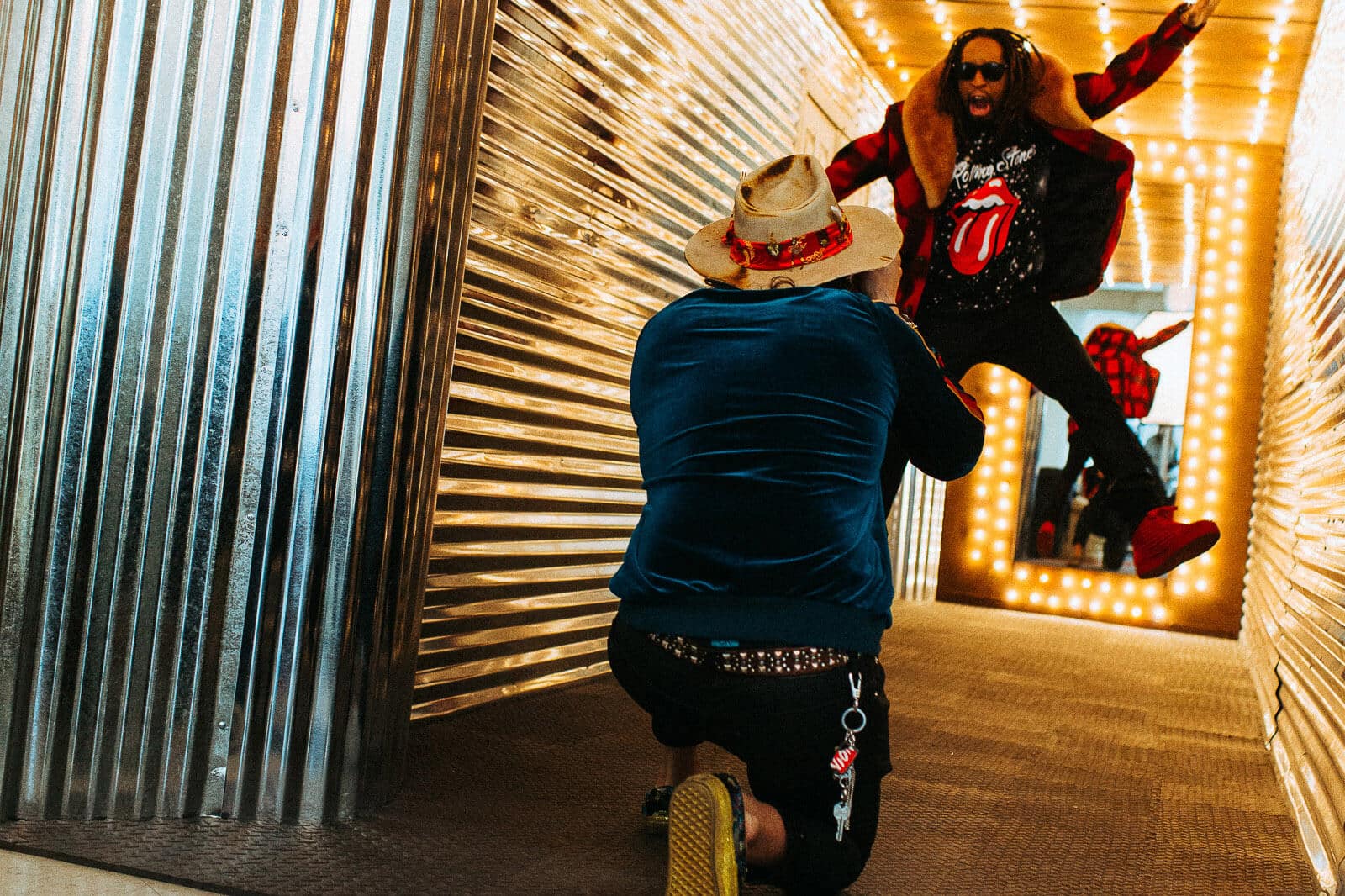
Let’s put it this way: If you want stiff headshots in a gray suit against a beige wall — probably not. If you want a photoshoot that feels like an editorial spread, emotional breakthrough, and creative awakening all in one — then yes. Nick Onken is very good at what he does. What Makes Nick […]

Most First-Time Brand Shoots Miss the Mark — Here’s Why If you’re preparing for your first brand photoshoot, you’re likely focused on the obvious: outfits, lighting, maybe even the perfect smile. But what actually makes a photoshoot land is much deeper — and most people don’t know what to look for. And unfortunately, that’s why most first-time […]

The Problem With Traditional Brand Photograph Most brand photos are surface-level. They might be polished. Perfectly lit. Technically solid. But they lack soul. They don’t make you feel the person. They don’t communicate energy, depth, or identity. They look good — but they don’t resonate. And that’s a problem if you’re a thought leader, coach, speaker, author, or […]

If you’re searching for the best personal brand photographer in New York, one name rises to the top: Nick Onken. Blending editorial sophistication with emotional storytelling, Nick’s work goes far beyond headshots. His Elevated Realism™ approach captures your highest self — magnetic, polished, and unmistakably you. 📍 A Photographer Who Knows NYC Intimately Nick spent 15 […]
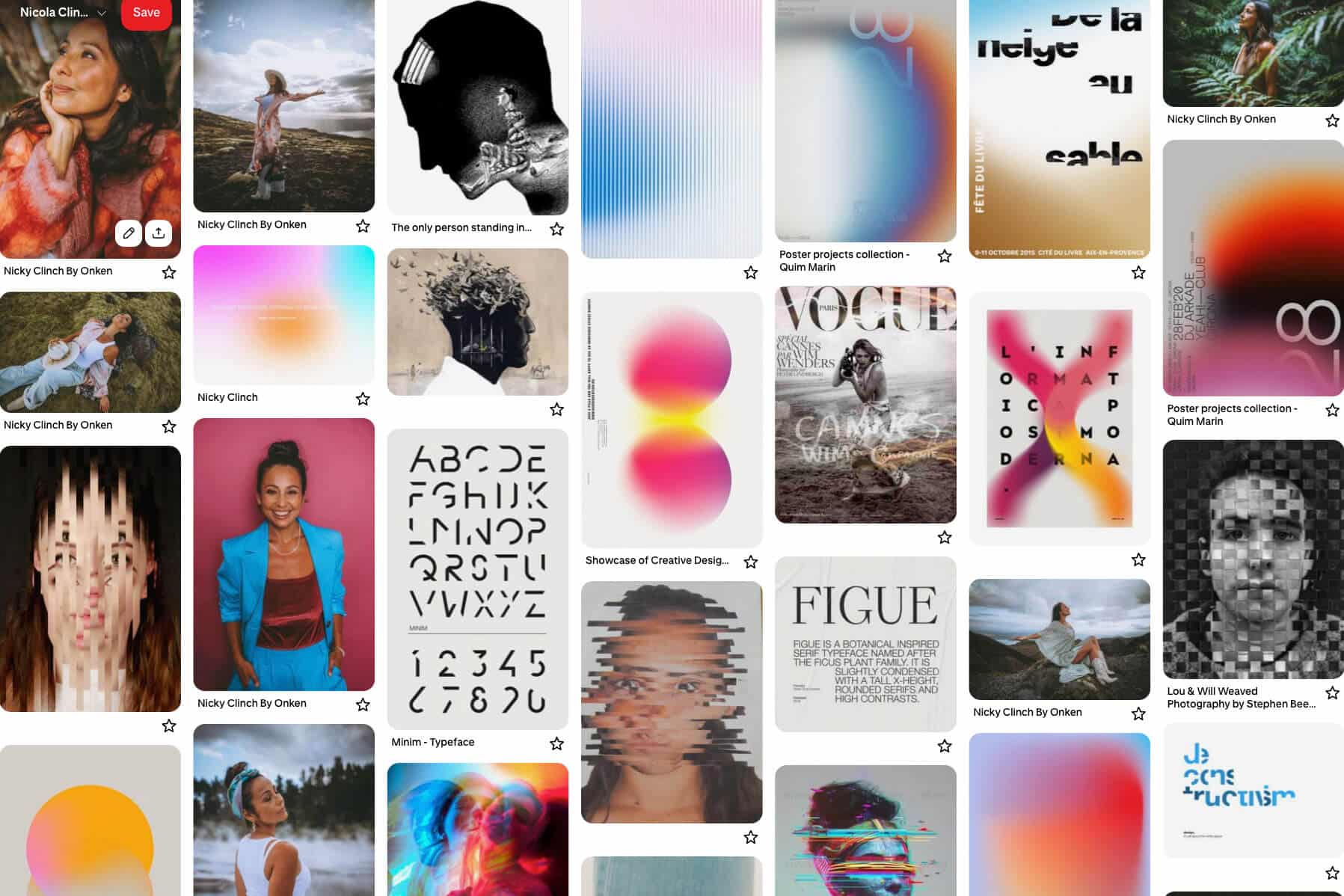
One of the biggest mistakes entrepreneurs make is building their website, offers, or marketing before they’ve ever clarified their brand identity. They hire web designers before they’ve defined their vibe. They write sales pages without knowing the feeling their brand is meant to transmit. But everything — your website, your photos, your content, your brand world — should stem […]

For most people, a photoshoot is about looking good. For Nicky Clinch, it became a mirror for transformation. Nicky is a master maturation coach, author of Surrender, and co-leader of the Emanate Mastermind. When she came to me, her brand was successful—multiple seven figures, sold-out programs, a global community—but something wasn’t resonating. She had reached a plateau. […]
About the Blogger
I was born in a low middle class conservative religious family in the suburbs of Seattle. Art was and always has been my passion, and more than that a way of life. Starting as a graphic designer, I taught myself photography, built a commercial/editorial business shooting for the worlds biggest brands like Nike, Coca-Cola, Adidas and more. I've also had the opportunity to photograph the world's biggest celebrities like Justin Bieber, Usher, Jessica Alba and more. I've curated a lifestyle around creativity and have learned a lot along the way which I get to share here.
I was born in a low middle class conservative religious family in the suburbs of Seattle. Art was and always has been my passion, and more than that a way of life. Starting as a graphic designer, I taught myself photography, built a commercial/editorial business shooting for the worlds biggest brands like Nike, Coca-Cola, Adidas and more. I've also had the opportunity to photograph the world's biggest celebrities like Justin Bieber, Usher, Jessica Alba and more. I've curated a lifestyle around creativity and have learned a lot along the way which I get to share here.